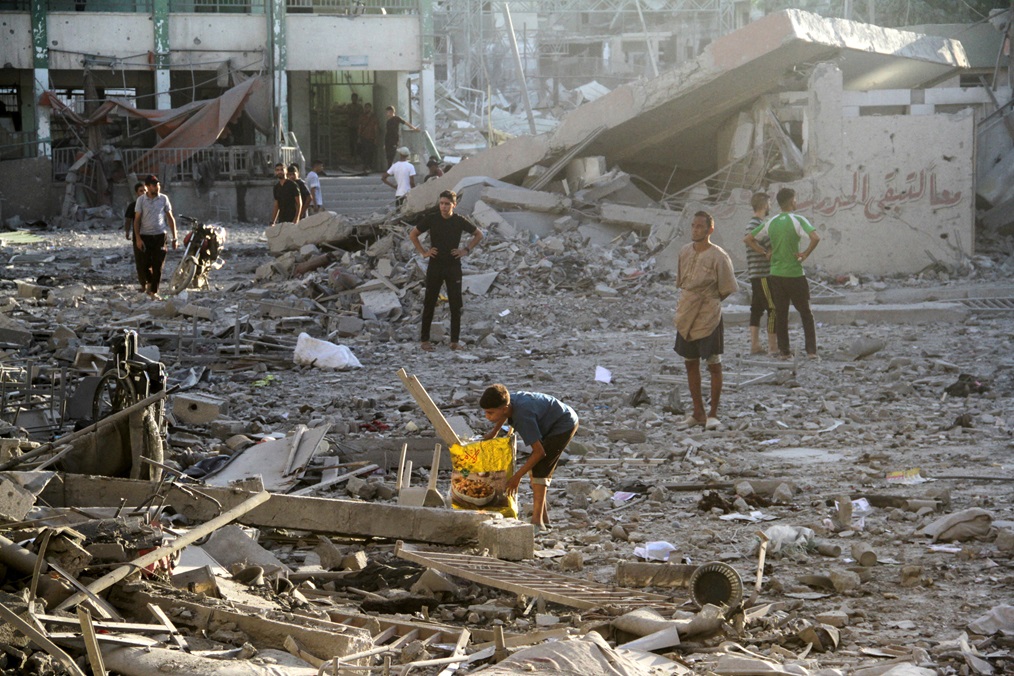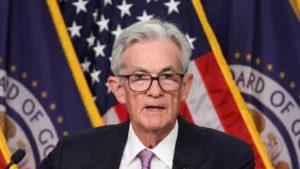
The Middle East conflict intensifies as violence in Gaza escalates, drawing international attention and calls for peace from the United Nations. With mounting devastation and civilian casualties, the global community is urging an end to hostilities to prevent a growing humanitarian crisis. The conflict, which has deep historical roots, has recently intensified, leading to widespread destruction and critical shortages of essential resources for the people of Gaza.
Widespread Devastation as Middle East Conflict Intensifies
In recent weeks, Gaza has witnessed escalating violence, with both sides involved in attacks that have left a heavy toll on civilians. The Middle East conflict intensifies as neighborhoods are reduced to rubble, and families are forced to flee their homes in search of safety. Basic infrastructure—water, power, and healthcare systems—have suffered severe damage, making it increasingly difficult for the people in Gaza to access essential services.
The humanitarian impact has reached critical levels, with schools, hospitals, and refugee camps under threat. Access to clean water, medical supplies, and food has diminished due to road blockages and the destruction of transport lines. The growing instability has led to an overwhelming strain on the region’s resources, with humanitarian agencies struggling to provide relief. The United Nations and multiple non-governmental organizations are actively working to supply aid; however, the ongoing violence makes it challenging to reach those in dire need.
UN Calls for a Ceasefire Amid Growing Crisis
The Middle East conflict intensifies with international organizations, led by the United Nations, sounding alarms over the worsening conditions. The UN has urgently called for an immediate ceasefire, stating that continued violence will likely deepen the humanitarian crisis and lead to further devastation. In a recent statement, the UN Secretary-General expressed grave concerns, stressing that an unmitigated continuation of violence could lead to irreversible damage to the region and catastrophic loss of life.
The UN, along with other peacekeeping organizations, is urging both sides to prioritize diplomacy and negotiation. The Secretary-General highlighted the obligation of all parties involved to respect international humanitarian laws, particularly those that protect civilians and vulnerable populations. By facilitating negotiations, the UN hopes to pave the way for a longer-term resolution that could help prevent the recurring cycles of violence that have plagued the region for decades.
Key Causes Behind the Escalation
The roots of the Middle East conflict are deep-seated and multifaceted, but recent escalations in Gaza have been particularly intense. Key factors fueling the current crisis include:
- Political Tensions and Failed Diplomacy: Years of unsuccessful negotiations and broken agreements have intensified mistrust on both sides. Political differences and failed peace talks have led to frustration, further entrenching both sides in their positions.
- Resource Scarcity and Economic Strain: Gaza faces ongoing economic challenges, with high unemployment rates, limited resources, and restricted access to essential goods. The blockade has worsened these conditions, contributing to a heightened sense of desperation among civilians.
- Border Disputes and Territorial Claims: Long-standing border disputes and disagreements over territorial rights continue to be a source of contention. For both parties, control over certain areas is not just political but also has significant cultural and historical implications.
Each of these factors contributes to a cycle of violence that has made a peaceful resolution increasingly difficult to achieve. The intensifying Middle East conflict underscores the complexities of the situation and the need for renewed diplomatic efforts to address these underlying issues.
The Role of International Support and Aid
As the conflict in Gaza worsens, international aid has become crucial for those affected. With infrastructure severely damaged and hospitals overwhelmed, humanitarian organizations are working around the clock to deliver aid. Yet, as the Middle East conflict intensifies, the distribution of aid has faced numerous obstacles. Blockades and military actions often limit access to essential supplies, complicating the efforts of international aid organizations.
Countries and international bodies, including the European Union and the United States, have pledged support and aid packages to alleviate the suffering. These contributions, however, have not been able to fully meet the vast and immediate needs of the people in Gaza. With continued calls for peace, there is hope that a ceasefire agreement could allow for increased and uninterrupted humanitarian aid to reach the most vulnerable populations.
Regional Implications as Middle East Conflict Intensifies
The escalating violence in Gaza has implications beyond its borders, impacting regional stability across the Middle East. As the Middle East conflict intensifies, neighboring countries, particularly Egypt, Jordan, and Lebanon, have expressed concerns over the potential for the conflict to spill over into their territories. Refugee displacement, as people flee Gaza in search of safety, has placed additional strain on nearby nations. In response, countries in the region are calling for de-escalation, fearing that the current conflict could ignite broader tensions and destabilize fragile political alliances.
There are growing fears that continued violence may also fuel extremism, as unresolved conflict and prolonged suffering create conditions that are often exploited by radical groups. Regional governments and international stakeholders are closely monitoring the situation, emphasizing the urgent need for peace to prevent the conflict from evolving into a larger geopolitical crisis.
A Call for Renewed Peace Efforts
As the Middle East conflict intensifies, the focus has shifted to finding lasting solutions that address both immediate humanitarian needs and long-standing political issues. Peace advocates are calling for renewed dialogue, emphasizing the importance of inclusive talks that consider the needs and perspectives of all stakeholders involved.
Long-term peace in the region will require addressing the fundamental issues at the heart of the conflict, including equitable resource distribution, security assurances, and political representation. The international community has a role to play in facilitating this process, providing mediation support, and ensuring that humanitarian aid reaches those affected by the conflict.
The United Nations continues to press for immediate de-escalation and a diplomatic path forward. However, achieving a durable peace solution will necessitate more than temporary ceasefires. The current situation highlights the need for comprehensive strategies that address both the symptoms and the root causes of the conflict. Only then can the region hope for lasting peace and stability.
Conclusion: Urgency of Global Involvement as Middle East Conflict Intensifies
As the Middle East conflict intensifies, it is imperative for the global community to act swiftly and decisively. The escalating violence in Gaza has highlighted the urgent need for peace, with the well-being of countless civilians hanging in the balance. International involvement, whether through diplomacy, humanitarian aid, or peacekeeping efforts, is essential to preventing further devastation and promoting a sustainable resolution.
A concerted global response—led by the United Nations, regional allies, and influential powers—has the potential to bring about meaningful change in Gaza. Achieving peace in the Middle East may seem challenging, but with collective action and a commitment to diplomacy, the world can hope to see an end to the violence, bringing relief to those affected and laying the groundwork for a more stable future in the region.


